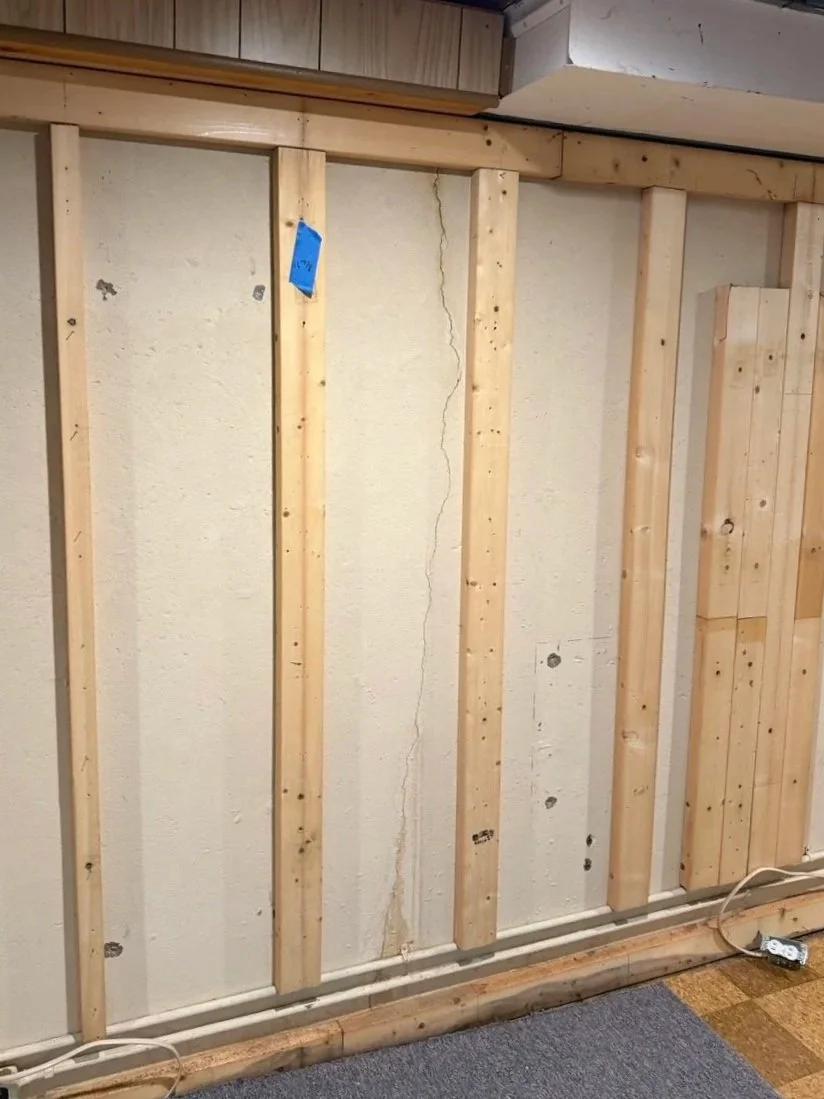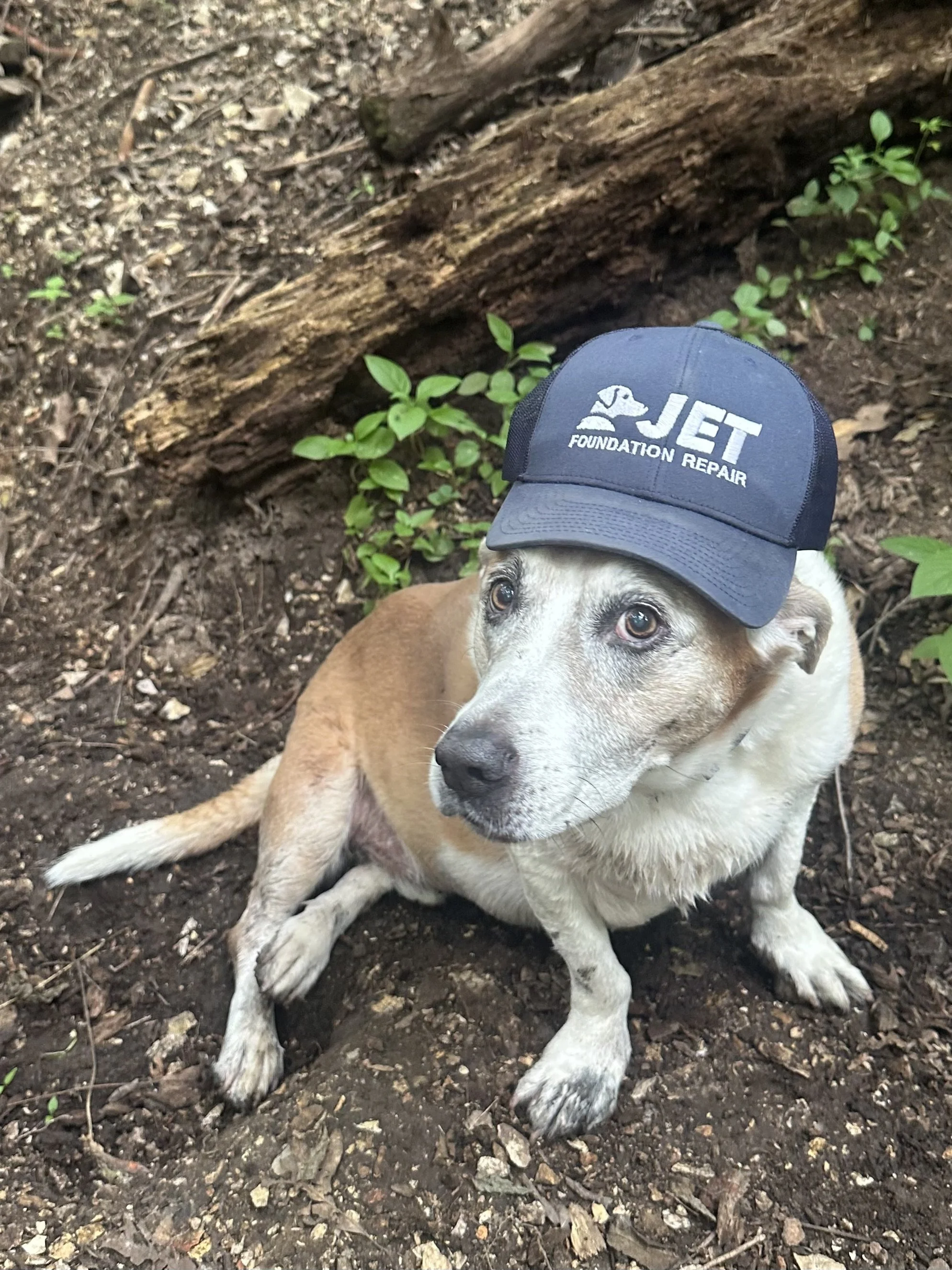
Vertical foundation crack repair & sealing in St. Louis
Most vertical cracks in St. Louis basements are caused by concrete shrinkage. We permanently seal them to stop water leaks for good.
Schedule a free foundation crack evaluation
Is your foundation crack structural or just leaking?
Not all foundation cracks are the same. In St. Louis, most vertical hairline cracks are common and caused by concrete shrinkage during the curing process. These are typically non-structural but can allow water to seep into your basement.
However, cracks that are horizontal, stair-stepped, or accompanied by a bowing wall are signs of structural failure.
Vertical Crack? You are in the right place. We can seal it permanently.
Horizontal or Bowing Wall? Click here for our Structural Stabilization Solutions.
How we repair foundation cracks: epoxy vs. urethane
We don't just patch cracks with surface mortar (which often fails in a few months). We use a Dual-Process Injection System that seals the crack from the inside out, all the way to the soil.
Epoxy Injection: For structural strength. We use this on wider cracks where the concrete needs to be bonded back together. The epoxy cures harder than the concrete itself, restoring the wall's monolithic strength.
Polyurethane Foam: For active leaks. This material expands up to 20 times its volume when injected, filling every microscopic void and stopping water instantly. It remains flexible, allowing for natural thermal movement without re-cracking.
Why do vertical cracks form in St. Louis basements?
Our "no-mess" crack repair guarantee
A foundation crack repair shouldn't turn your basement into a construction site.
Fast: Most repairs are completed in 1–2 hours.
Clean: No jackhammers, no dust, and no digging.
Warrantied: Our crack injections come with a Lifetime Transferable Warranty. If the crack ever leaks again, we fix it for free.
Most vertical cracks are caused by concrete shrinkage or minor thermal settling. As new concrete cures, it shrinks slightly, creating hairline fractures. Over time, the freeze-thaw cycles of Missouri winters can expand these cracks, turning a hairline fracture into a basement leak.
Unlike bowing walls (caused by soil pressure), these cracks rarely threaten the stability of your home. They are simply a vulnerability in your waterproofing defense that needs to be sealed.
Foundation crack repair FAQs
-
We don't recommend it. Hydraulic cement is a rigid "surface patch." It doesn't penetrate the crack. When your wall expands and contracts with the seasons, the patch will pop off, and the leak will return. Injection fills the entire depth of the wall.
-
A typical vertical crack injection in St. Louis ranges from $700 to $900, depending on the width and length of the crack.
-
Not where we injected it. However, if your foundation has active structural movement (bowing), a new crack may open up next to the old one. This is why we inspect your wall for structural issues before we inject.
In an industry known for high-pressure sales and commission-driven inspectors, Jet Foundation Repair stands apart. We are 100% Employee-Owned, which means the person inspecting your home is focused on building a long-term reputation, not hitting a monthly sales quota.
We operate with a simple promise: No Scare Tactics.
Honest Diagnostics: If your crack is just a seasonal leak, we will tell you. We won't try to sell you structural piers for a problem that only needs epoxy.
St. Louis Natives: We understand Missouri’s clay soil better than anyone because we live here. We know the difference between normal settling and serious structural failure.
The "Jet" Standard: Named after our founder’s loyal dog, our company is built on faithfulness and reliability. We treat your basement the way we’d treat our own.
Why St. Louis homeowners choose Jet Foundation Repair
Our foundation crack repair services
We offer a full range of foundation crack repair services in St. Louis and nearby communities:






